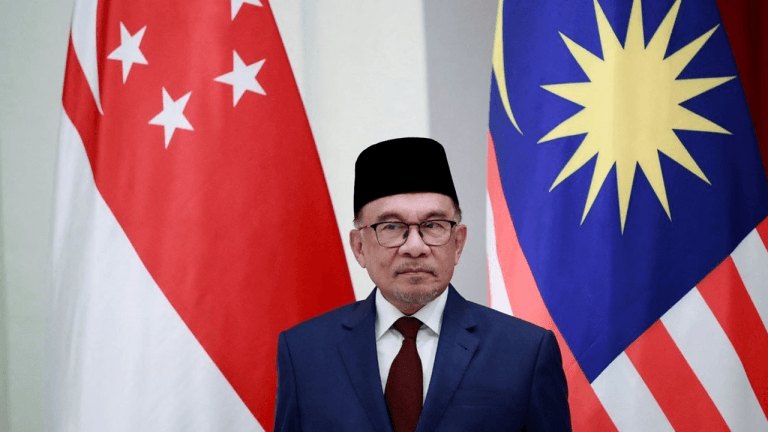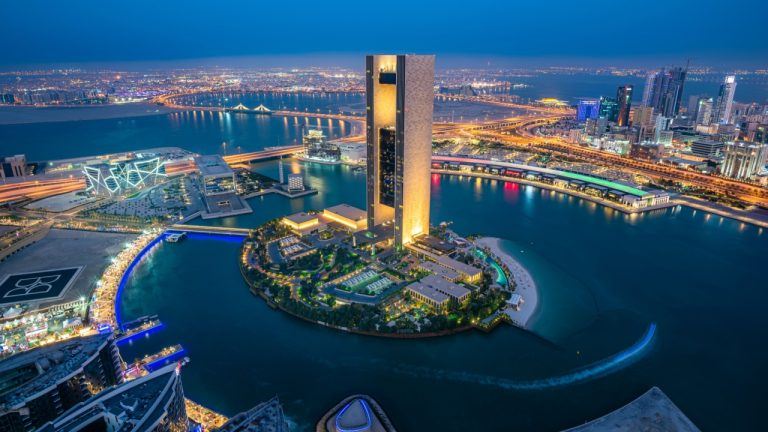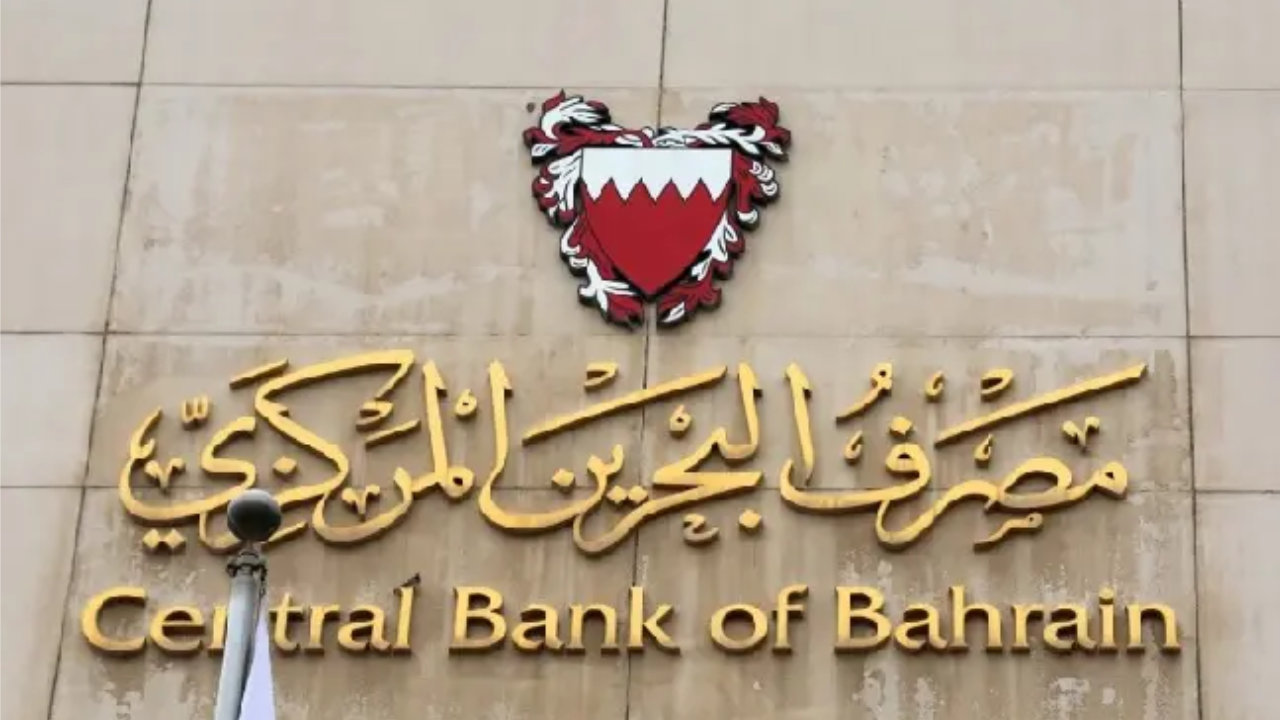 Malaysian Prime Minister Anwar Ibrahim announced that Malaysia and Bahrain are deepening economic ties, focusing on cryptocurrency, the Sandbox platform, tourism, connectivity, and manufacturing. Bahrain also pledged support for upcoming Asean-GCC summits. Anwar’s visit, at the invitation of Bahrain’s Crown Prince, aims to strengthen bilateral cooperation and benefit both nations’ economies. In early January 2025, […]
Malaysian Prime Minister Anwar Ibrahim announced that Malaysia and Bahrain are deepening economic ties, focusing on cryptocurrency, the Sandbox platform, tourism, connectivity, and manufacturing. Bahrain also pledged support for upcoming Asean-GCC summits. Anwar’s visit, at the invitation of Bahrain’s Crown Prince, aims to strengthen bilateral cooperation and benefit both nations’ economies. In early January 2025, […] Bahrain’s central bank is developing regulations for stablecoins to reduce transaction costs and increase financial access. Making the Digital Asset Space Safer Bahrain’s central bank is drafting regulations on stablecoin issuance, the Middle Eastern country’s Finance and National Economy Minister Shaikh Salman bin Khalifa Al Khalifa recently disclosed. Once enacted, the stablecoins are expected to […]
Bahrain’s central bank is developing regulations for stablecoins to reduce transaction costs and increase financial access. Making the Digital Asset Space Safer Bahrain’s central bank is drafting regulations on stablecoin issuance, the Middle Eastern country’s Finance and National Economy Minister Shaikh Salman bin Khalifa Al Khalifa recently disclosed. Once enacted, the stablecoins are expected to […]

The new offering will be available across all Crypto.com card tiers with up to 8% rewards on spending.
Mastercard announced on Dec. 4 that it had issued a license to Hong Kong-based cryptocurrency exchange Crypto.com to begin offering its pre-paid payments card services on the Mastercard network in the Gulf Cooperation Council (GCC) region, beginning with Bahrain in January of 2025.
According to a blog post from Mastercard, once issued, cardholders will be able to fund their accounts via the Crypto.com app using e-money wallets or third party-issued credit and debit cards.
The card will be offered across all five Crypto.com card tiers, including its top-level “Black Obsidian” offering, with rewards of up to 8% and card payouts in US dollars.
 Stablecoin issuer Tether has announced a $3 million strategic investment in the Kem app, a platform for money transfers and financial management. This collaboration aims to introduce USDT on Kem’s platform, promoting widespread adoption in the Middle East and enhancing financial inclusion. The investment is expected to improve economic conditions in countries like Kuwait, Bahrain, […]
Stablecoin issuer Tether has announced a $3 million strategic investment in the Kem app, a platform for money transfers and financial management. This collaboration aims to introduce USDT on Kem’s platform, promoting widespread adoption in the Middle East and enhancing financial inclusion. The investment is expected to improve economic conditions in countries like Kuwait, Bahrain, […]
UAE, Dubai and Bahrain continue to attract major cryptocurrency exchanges and businesses due to their progressive regulatory approaches.
Major cryptocurrency exchanges and businesses are being lured to a proverbial crypto oasis around the Persian Gulf, according to Binance FZE’s general manager.
Alex Chehade, who heads Binance's local operation in Dubai, tells Cointelegraph reporter Ezra Reguerra that progressive regulatory frameworks in the region are a major drawcard for startups and established industry players:
“What stands out in the Middle East is regulatory certainty and clarity. We have a virtual-asset-specific regulator here in Dubai, VARA. We have ADGM with its virtual asset framework, we have Bahrain’s central bank being accepting of cryptocurrencies.”
Chehade believes that regulators in other jurisdictions have not quite figured out or taken the time to learn the ins and outs of the cryptocurrency landscape, or simply lack the “bandwidth” to begin regulatory the sector:
“So you’re seeing events like GITEX and Future Blockchain Summit as well as global companies coming here because it’s easy to do business.”
The Binance FZE general manager adds that businesses need certainty in order to create long-term plans and the regulatory parameters that exist in these specific jurisdictions are facilitating that process.

Chehade also highlighted Binance’s role as a catalyst of sorts for Web3 companies and startups to become established in the region.
“We’re an ecosystem enabler, we’re the biggest Web3 company in the world. You often see network effects with size and we’re seeing a healthy environment with big and small players.”
Chehade stated that Binance now employs around 600 people in its Dubai-based operation and will continue to play its part in fostering the industry. He adds that Binance FZE has been operating as a regulated exchange in Dubai for a year and a half and is segregated from the rest of its global operations with ring-fenced custody and operations.
Related: Dubai lures AI, Web3 enterprises with 90% subsidized commercial licenses
In a prior interview with Cointelegraph at the Blockchain Economy Dubai Summit, Akshay Chopra, Visa’s vice president, and head of innovation and design, echoed Chehade’s sentiments regarding the region's progressive regulatory outlook.
As a board member of the MENA Fintech Association, Chopra highlighted the “forward-looking and inclusive view of blockchain and crypto solutions” as a key driver of growth for the sector in the region:
“Regulators are actually looking forward and working with the local blockchain community, institutions, startups, entrepreneurs to come up with a very inclusive perspective on what is the future and how can we be best positioned both as a market and as a regulator.”
Research from blockchain analysis firm Chainalysis indicates that the MENA region is the fastest growing cryptocurrency market in the world. Transaction volume in the region reveals users received $566 billion in crypto between July 2021 and June 2022.
Additional reporting by Ezra Reguerra.
Magazine: Blockchain detectives: Mt. Gox collapse saw birth of Chainalysis
 Cryptocurrency exchange Binance has announced that it has received a full license from the Central Bank of Bahrain. “The crypto asset license will allow Binance to provide crypto-asset trading, custodial services, and portfolio management to customers under the supervision of the Bahrain regulators,” said the exchange. Binance Now Licensed in Bahrain Cryptocurrency exchange Binance announced […]
Cryptocurrency exchange Binance has announced that it has received a full license from the Central Bank of Bahrain. “The crypto asset license will allow Binance to provide crypto-asset trading, custodial services, and portfolio management to customers under the supervision of the Bahrain regulators,” said the exchange. Binance Now Licensed in Bahrain Cryptocurrency exchange Binance announced […]
The world’s largest crypto exchange will now provide various regulated crypto services to Bahraini citizens.
Crypto exchange Binance will provide fully regulated services to its first country in the Middle East thanks to a license granted by Bahrain’s central bank.
Bahrain was able to issue the license through the Cooperation Council for the Arab States of the Gulf (GCC). The world’s largest exchange and CEO Changpeng Zhao announced the crypto-asset service provider license on March 14.
#TeamBahrain.#Binance has been granted the first license for a global crypto-asset provider in The Cooperation Council for the Arab States of the Gulf (GCC) by the Central Bank of Bahrain. pic.twitter.com/Ndnb4xhA5y
— CZ Binance (@cz_binance) March 14, 2022
Binance’s new license allows it to offer crypto services, including trading, custody, and portfolio management for customers in the Middle East’s smallest economy. Last December, Binance received an in-principal approval to operate in Bahrain. That approval has now become a full-fledged license.
Central Bank of Bahrain (CBB) governor HE Rasheed Al Maraj said that the bank was “developing regulations aligned with global trends” that “enable innovation and best practices.”
The license allows Binance to continue its expansion efforts across global jurisdictions while complying with local regulations. Last week, CZ stated that he wanted Binance to “identify and invest in” traditional businesses in every economic sector worldwide with the express intent of tying them into cryptocurrency.
Despite its relative size to other countries in the region, or possibly due to that, Bahrain has been one of the most crypto-friendly countries in the Middle East. The CBB successfully trialed JP Morgan’s crypto payment system Onyx in January.
Cointelegraph reported on Jan. 10 that using crypto-based payment systems will help the CBB address what governor Al Maraj called “existing inefficiencies in the traditional cross-border payments industry.”
Related: Binance gets the green light from Canada and Bahrain
Landing licenses to operate in each region will certainly help Binance achieve its goals in that respect. Its most recent notable acquisition was news media publisher Forbes last month for the princely sum of $200 million.
The CBB’s move also arguably puts the country ahead of Dubai as the region’s crypto hub. Bahrain’s financial crypto regulations are certainly ahead of those in Dubai, which does not yet allow crypto exchanges to offer services to its residents.
However, CEO of Bahrain-based crypto exchange CoinMENA, Talal Tabbaa, told CNN in February that although the central bank has more advanced crypto regulations now, "If banking was sorted, then Dubai could be the number one destination for crypto."
The banking issue in Dubai may be sorted this year as United Arab Emirates (UAE) Prime Minister Sheikh Mohammed bin Rashid Al Maktoum created a legal framework for crypto in Dubai. Cointelegraph reported that the Prime Minister said the framework would protect investors and design “much-warranted international standards” for crypto industry governance.
 Binance has received in-principle approval from the Central Bank of Bahrain to operate a cryptocurrency service provider in the country. The license is part of Binance’s “plans to become a fully-regulated centralized cryptocurrency exchange,” the crypto exchange detailed. Binance Receives In-Principle Approval in Bahrain Crypto exchange Binance announced Monday that it has “received in-principle approval […]
Binance has received in-principle approval from the Central Bank of Bahrain to operate a cryptocurrency service provider in the country. The license is part of Binance’s “plans to become a fully-regulated centralized cryptocurrency exchange,” the crypto exchange detailed. Binance Receives In-Principle Approval in Bahrain Crypto exchange Binance announced Monday that it has “received in-principle approval […]